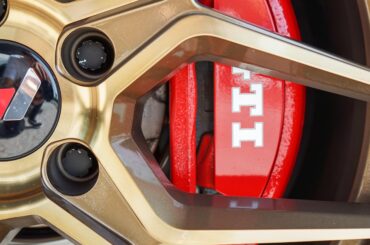Can a Bad Car Battery Cause Electrical Problems?
Have you ever wondered if a simple car battery issue could lead to many electrical problems in your vehicle? The answer is yes! A bad car battery can cause significant electrical issues that affect various components of your car. Understanding the impact of the car battery on the vehicle’s electrical system is crucial for every car owner and driver.
In this article, we will delve into the world of car batteries and explore the potential issues that arise when they go bad. From difficulties in starting the engine to flickering lights and malfunctioning electronic components, we will uncover how a weak battery can wreak havoc on your vehicle’s electrical performance. By the end of this article, you will be equipped with essential knowledge about the importance of maintaining a healthy car battery and safeguarding your car’s electrical system from unnecessary troubles. Let’s dive in and discover the fascinating connection between a bad car battery and electrical problems in your beloved car.
Contents
The Role of a Car Battery in the Electrical System
At the heart of your vehicle’s electrical system lies the indispensable car battery, which plays a crucial role in ensuring the smooth functioning of your automobile. Its primary function is to supply the essential electrical power required to start the engine and operate various electrical components throughout the vehicle.

1. Supplying Power to Start the Engine and Electrical Components:
When you turn the ignition key, the car battery springs, delivering electrical energy to the starter motor. This, in turn, initiates the engine’s combustion process, bringing your car to life. Beyond starting the engine, the car battery continues to provide power to many electrical components such as lights, radio, power windows, air conditioning, and more. None of these crucial systems could operate effectively without a fully functional battery.
2. Stabilizing Voltage and Providing Power during Alternator Low Output:
While the alternator usually takes the responsibility of generating electrical power when the engine is running, there are instances when the alternator output may not be sufficient. During these times, the car battery acts as a buffer, stabilizing the voltage and supplying power to the electrical systems. For instance, when idling or driving at low speeds, the alternator’s output might not meet the vehicle’s electrical demands. The car battery steps in to bridge the gap, ensuring a continuous and stable flow of electricity.
The car battery is a vital source of stored electrical energy, empowering your vehicle to function reliably and efficiently. Without it, starting your car would be impossible, and many essential electrical components would cease to operate. Understanding the pivotal role of the car battery in the electrical system emphasizes the need for regular maintenance and timely replacement to avoid potential problems and keep your car running smoothly.
Identifying Signs of a Bad Car Battery
A failing car battery can bring about many inconvenient and frustrating electrical problems in your vehicle. Every car owner must recognize the warning signs of a deteriorating battery.
1. Difficulty Starting the Engine:
One of the most apparent indicators of a bad car battery is experiencing difficulty or slow cranking when attempting to start the engine. If you notice that the engine is sluggish to turn over or if you hear a clicking sound when turning the key, it may be a sign that the battery is losing its ability to deliver sufficient power.
2. Dimming Headlights and Flickering Lights:
A weakening battery may cause your headlights to appear dimmer than usual, especially when idling or driving at low speeds. Additionally, you might observe the interior or dashboard lights flickering intermittently, indicating voltage fluctuations caused by an unstable battery.
3. Other Electrical Malfunctions:
A deteriorating car battery can lead to erratic behavior in various electrical components. For instance, you might notice issues with power windows moving sluggishly, the radio resetting frequently, or the air conditioning system functioning intermittently. These malfunctions are often caused by an inconsistent power supply from a failing battery.
Performing Basic Battery Tests:
If you suspect that your car battery is the culprit behind these electrical issues, you can conduct some basic battery tests to determine its health:
1. Voltage Check:
Using a multimeter, measure the battery’s voltage when the engine is off. If the voltage is significantly lower, it could indicate a weak battery.
2. Load Test:
A load test helps assess the battery’s ability to deliver power under load. This test is typically performed by a professional mechanic or at an automotive service center. During the test, a load is applied to the battery, simulating the demands of starting the engine. If the battery’s voltage drops significantly during the test, it indicates a weakened battery that may need replacement.
Electrical Problems Caused by a Bad Car Battery
When a car battery starts to fail, it can trigger various electrical problems that can significantly affect your vehicle’s performance and overall driving experience. Let’s explore in-depth the various electrical issues that can arise due to a bad car battery:
1. Starting Issues:
A weak car battery may struggle to provide the necessary power to the starter motor, resulting in difficulties starting the engine. You might notice slow cranking or a clicking sound when turning the key. The engine may fail to start altogether in severe cases, leaving you stranded. Additionally, a weakened battery can lead to engine stalling while idling or at traffic stops, further exacerbating the starting issues.
2. Dim or Flickering Lights:
As the battery loses its capacity to store and deliver electrical energy, the headlights and interior lights may appear dimmer than usual. When the engine runs at low RPM or idling, the alternator output might not compensate for the battery’s deficiency, causing lights to flicker or exhibit unstable brightness. This can compromise nighttime visibility and create hazardous driving conditions.
3. Electronic Component Malfunctions:
Fluctuations in voltage caused by a failing battery can negatively impact various electronic components in the car. Power windows may move slowly or stop working, the power seats may become unresponsive, and the radio reset frequently. The air conditioning system may also function intermittently or exhibit irregular behavior due to the inconsistent power supply.
4. Impact on Engine Performance:
An unstable electrical system can adversely affect the car’s engine performance and fuel efficiency. As the battery struggles to maintain a steady voltage, the engine’s electronic control modules may receive insufficient power, leading to engine timing and fuel injection irregularities. This can result in reduced acceleration, decreased fuel economy, and an overall engine responsiveness decline.
The Importance of Regular Battery Maintenance
Regular battery maintenance is fundamental to ensuring your car’s electrical system operates smoothly and avoiding potential electrical problems. Taking care of your car battery extends its lifespan and enhances your driving experience. Here’s why regular battery maintenance is essential:

1. Preventing Potential Electrical Problems:
By conducting regular maintenance, you can identify early signs of a weakening battery before it leads to more significant electrical issues. Addressing problems promptly can prevent engine starting failures, dimming lights, and electronic component malfunctions, which can be inconvenient and sometimes dangerous, especially during night driving or adverse weather conditions.
2. Ensuring Reliable Vehicle Performance:
A healthy car battery is crucial for your vehicle’s overall performance and drivability. It provides the necessary power to start the engine and ensures all electrical components function optimally. Regular maintenance helps maintain a stable electrical system, enhancing engine performance, fuel efficiency, and the smooth operation of various electronic modules.
Practical Tips for Maintaining a Car Battery:
To keep your car battery in excellent condition and avoid potential electrical woes, consider the following practical tips for regular maintenance:
1. Keep it Clean:
Regularly inspect the battery terminals and cables for any signs of dirt, debris, or corrosion. Clean terminals ensure better electrical contact and prevent voltage drops due to poor connections.
2. Check for Corrosion:
Corrosion in battery terminals can impede the flow of electricity and weaken the battery’s performance. Use a wire brush or a battery terminal cleaner to remove corrosion buildup. Applying a thin coat of petroleum jelly or dielectric grease on the terminals can help prevent future corrosion.
3. Ensure Proper Charging:
Regularly monitor the battery’s state of charge using a voltmeter or a battery tester. If the battery voltage drops below 12.4 volts, recharge it to the recommended level.
4. Park in a Cool Location:
High temperatures can accelerate battery deterioration. Park your car in a shaded or cool location, especially during scorching summer.
5. Test the Battery’s Health:
If you suspect battery issues or experience any electrical problems, consider getting the battery tested by a professional. They can perform a load test or a comprehensive battery health check to assess its condition accurately.
Troubleshooting and Solutions
Troubleshooting electrical issues in your car can sometimes be daunting, but with the right approach, you can identify whether your car battery is the culprit behind the problems. Here are some troubleshooting tips to help you pinpoint battery-related electrical issues:
1. Check Starting Issues:
If you experience difficulty starting the engine or hear a clicking sound when turning the key, it may indicate a weak or dying battery. Before assuming the worst, ensure the battery terminals are clean and securely connected. If the terminals are clean and the issue persists, consider performing a voltage check on the battery to verify its health.
2. Investigate Dim or Flickering Lights:
Inspect the battery terminals for corrosion or loss of connections if your headlights appear dim or your interior lights flicker. Cleaning the terminals and ensuring a snug fit can often resolve these issues. However, if the lights continue to flicker or remain dim, it may be a sign of a deteriorating battery that requires replacement.
3. Address Electronic Component Malfunctions:
When experiencing problems with power windows, radio resets, or erratic behavior in other electronic components, start by checking the battery’s state of charge. A low battery voltage could be the root cause of these malfunctions. Charging or replacing the battery can resolve these electronic glitches if needed.
4. Examine Impact on Engine Performance:
A bad battery might affect the electronic control modules if your car’s engine performance is irregular, with reduced acceleration or decreased fuel efficiency. Perform a load test or have a professional assess the battery’s health. If it’s weak, replace it to restore optimal engine performance.
Solutions Based on Identified Problems:
Based on the issues identified during troubleshooting, here are the corresponding solutions:
1. Replacing the Battery:
If the battery is old, weak, or shows signs of failure during voltage or load tests, consider replacing it with a new, reliable battery. Opt for a battery that meets the manufacturer’s specifications for your vehicle to ensure proper performance and compatibility.
2. Cleaning Terminals and Connections:
Corroded or loose battery terminals can cause electrical problems. Clean the terminals using a mixture of baking soda and water, and secure them tightly. Applying petroleum jelly or dielectric grease can help prevent future corrosion.

3. Seeking Professional Help:
If troubleshooting doesn’t resolve the issues or you lack experience dealing with car batteries, seek professional assistance. An automotive technician can conduct thorough battery tests and accurately diagnose any underlying electrical problems.
Can a bad car battery cause electrical problems?
In conclusion, a bad car battery can cause electrical problems, impacting engine performance, electronic components, and more. To avoid issues, proactive battery maintenance is crucial. Keep the battery clean, check for corrosion, and seek professional help. Let’s prioritize our car batteries’ health and share experiences or questions in the comments to build an informed community of car owners. Stay proactive and keep your car’s electrical system running smoothly!





